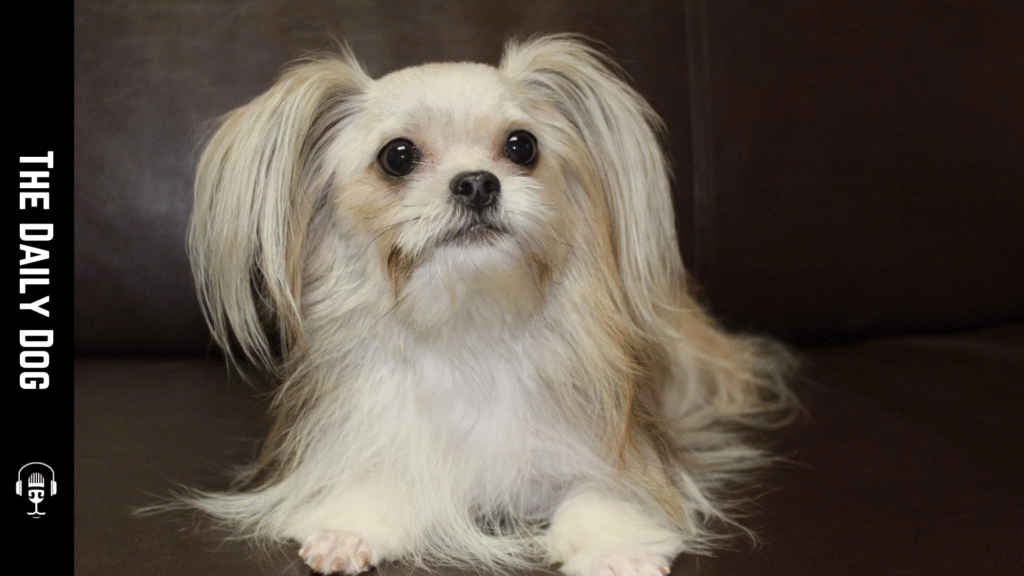The Mi-Ki, a diminutive marvel of canine charm, embodies a blend of grace, intelligence, and affectionate devotion that has earned it a devoted following around the world. This small breed, often described as a pocket-sized velvet companion, is celebrated not only for its endearing looks but for a temperament that blends loyalty with an upbeat, gentle demeanor. For prospective owners seeking a devoted lap dog that thrives on human connection, the Mi-Ki offers a compelling proposition that transcends its tiny stature.
Origin and Appearance
The Mi-Ki traces its roots to Asia, with a lineage tied to ancient companions that prized companionship and serenity. What immediately strikes observers is its soft, plush coat, typically arranged in a dense, flowing mantle that can appear almost silky in certain lighting. The breed’s facial expression is often described as intelligent and alert, with dark, round eyes that convey warmth and a sense of quiet curiosity. The ears and tail vary in style depending on breeding lines, but the hallmark remains a compact, graceful silhouette that moves with a poised, confident gait.
Size and proportions are a defining feature. Most Mi-Ki dogs weigh between 4 to 9 pounds, standing roughly 8 to 12 inches tall at the shoulder. Their small frame belies a sturdy, well-balanced build that supports their lively but measured activity. Despite their tiny size, Mi-Kis often exude a presence that feels larger than life, thanks to their confident stance and luminous coat.
Temperament and suitability
The Mi-Ki’s temperament is one of its most compelling attributes. These dogs tend to form strong, enduring bonds with their families, displaying a warm, affectionate nature that makes them superb companions for adults and families with older children. They thrive on human interaction and become deeply attuned to the routines, moods, and rhythms of their household. This sensitivity translates into an instinctive reading of owners’ needs, whether it’s a comforting cuddle after a long day or a lively play session that scratches the surface of their energetic spirit.
Equally important is their generally even-keeled temperament. Mi-Kis are often described as being quiet, gentle, and relatively adaptable, which can make them suitable for apartment living or smaller homes where space is at a premium. They may require some structured socialization to ensure they remain confident around strangers and other pets, particularly in noisy or overstimulating environments. With proper early socialization and ongoing positive reinforcement training, Mi-Kis tend to develop into well-mannered, well-adjusted companions who are pleasant around visitors and family members alike.
Intelligence and trainability
Intelligence is a strong suit for the Mi-Ki, and their eagerness to please paired with their keen perception often translates into effective training outcomes. Like many small breeds, they respond best to positive reinforcement methods that emphasize praise, tasty treats, and consistent routines. Short, engaging training sessions are typically more effective than long, repetitive drills, given their tendency to tire of monotony. Early house training and socialization help establish good habits that persist into adulthood.
Potential owners should anticipate a moderate level of independence. Mi-Kis may occasionally test boundaries or exhibit selective stubbornness, a trait common among small breeds. Patience, consistency, and a focus on building a strong, trusting relationship will yield the best results. A mentally stimulated Mi-Ki that enjoys puzzle toys, scent games, and interactive play tends to stay happier and healthier, reinforcing the bond between dog and owner.
Health considerations and care
Prospective Mi-Ki owners benefit from understanding the breed’s typical health profile. Like all dogs, Mi-Kis can be prone to certain hereditary conditions, so working with a reputable breeder who conducts appropriate health screenings is essential. Regular veterinary checkups, a balanced diet tailored to their size and activity level, and an exercise routine that matches their energy without overexertion are all important components of responsible care.
Coat care is another distinctive aspect. The Mi-Ki’s plush coat requires routine brushing to prevent tangles and mats, especially in areas where hair tends to accumulate, such as behind the ears and around the neck. Depending on the coat length and texture, grooming sessions may be needed every week or two, along with periodic professional trimming to maintain a neat, tidy appearance. A dermatologist’s recommendation may be valuable if skin sensitivity is suspected, as some Mi-Kis may have areas prone to irritation or seasonal shedding.
Exercise and daily routine
Despite their compact size, Mi-Kis benefit from a structured daily routine that balances physical activity with mental engagement. Short, interactive play sessions, a couple of daily walks, and safe indoor enrichment can help burn energy and prevent restlessness. While they are not typically high-energy dogs, Mi-Kis enjoy opportunities to explore, sniff, and engage their natural curiosity. A comfortable, safe space for lounging and a predictable schedule contribute to a sense of security that many Mi-Ki owners prize.
Social dynamics and family life
Mi-Kis are renowned for their affectionate, people-centered nature. They tend to form strong bonds with their primary caregivers and often relish when family members engage with them regularly. In households with children, adult supervision and gentle handling are essential, as the Mi-Ki’s small size makes it prudent to teach children to approach dogs calmly and respectfully. When properly socialized, Mi-Kis can share space with other pets, though introductions should be gradual and supervised to ensure a harmonious household.
Travel and living considerations
For families that love travel or frequent outings, the Mi-Ki’s compact size makes it a convenient companion for car rides and hotel stays. However, like all dogs, they require a comfortable, secure environment during travel, including proper harnesses, IDs, and familiar bedding or blankets to ease transitions. When adopting a Mi-Ki, consider whether your living situation, work schedule, and travel frequency align with the care needs and companionship demands of an animal that thrives on human attention.
Choosing a Mi-Ki breeder or rescue
If you’re ready to bring a Mi-Ki into your life, partnering with a responsible breeder or rescue organization is crucial. Reputable breeders prioritize health testing for hereditary conditions, verify lineage, and maintain high standards of welfare for breeding stock and puppies. They should welcome inquiries, provide transparent health records, and invite prospective owners to visit and meet the dogs in person. Rescue organizations and breed-specific groups can also be a path to a Mi-Ki that needs a forever home, often offering temperament assessments and post-adoption support to ensure a successful integration.
The enduring appeal of the Mi-Ki
The Mi-Ki’s enduring appeal lies in its unique fusion of elegance, warmth, and adaptability. Its compact frame houses a personality that is surprisingly expansive: a loyal companion with a gentle demeanor, a curious spirit, and an intuitive understanding of human emotion. This breed embodies the idea that a small dog can carry a big heart, delivering comfort, companionship, and a sense of steady companionship that resonates with families, singles, and seniors alike.
In a world where many dog breeds vie for attention with size or spectacle, the Mi-Ki distinguishes itself through understated sophistication and a heart-to-heart bond with its people. The breed’s beauty is not solely in its physical attributes but also in the emotional resonance it creates within a home. For individuals who value quiet resilience, affectionate presence, and a canine partner that can be both a playful friend and a soothing confidant, the Mi-Ki presents a compelling choice.
Practical steps for potential owners
- Research thoroughly: Learn about the breed’s temperament, grooming needs, and potential health considerations. Visit reputable breeders or rescue groups to observe temperament and care standards.
- Assess your lifestyle: Ensure your routine accommodates daily companionship, regular gentle exercise, and mental stimulation suitable for a small breed.
- Plan for grooming: Budget time and resources for coat maintenance, including brushing, occasional trims, and skin care if needed.
- Prioritize health screenings: Seek breeders who perform recommended health evaluations and are transparent about lineage and health history.
- Build a routine: Establish consistent feeding, walking, training, and rest times to create predictability and security.
- Socialize early: Introduce a Mi-Ki to a variety of people, environments, and gentle pets to foster confidence and adaptability.
Conclusion
The Mi-Ki stands as a remarkable reminder that extraordinary companionship can come in a compact, well-proportioned package. Its combination of affectionate nature, keen intelligence, and refined presence makes it a standout choice for households seeking a devoted, elegant, and low-noise canine partner. While every individual Mi-Ki will have its own personality and quirks, the breed as a whole offers a blueprint for living harmoniously with a dog that values closeness, quiet joy, and enduring loyalty. For the right family or individual, the Mi-Ki can transform daily life into a tapestry of comforting moments, shared smiles, and a bond that grows deeper with every gentle nuzzle and quiet cuddle.
We offer a FREE Strategy Call.
Click on the graphic to learn more
Read More


Puppy Mills in South Korea: A Rescue Story From the Front Lines








